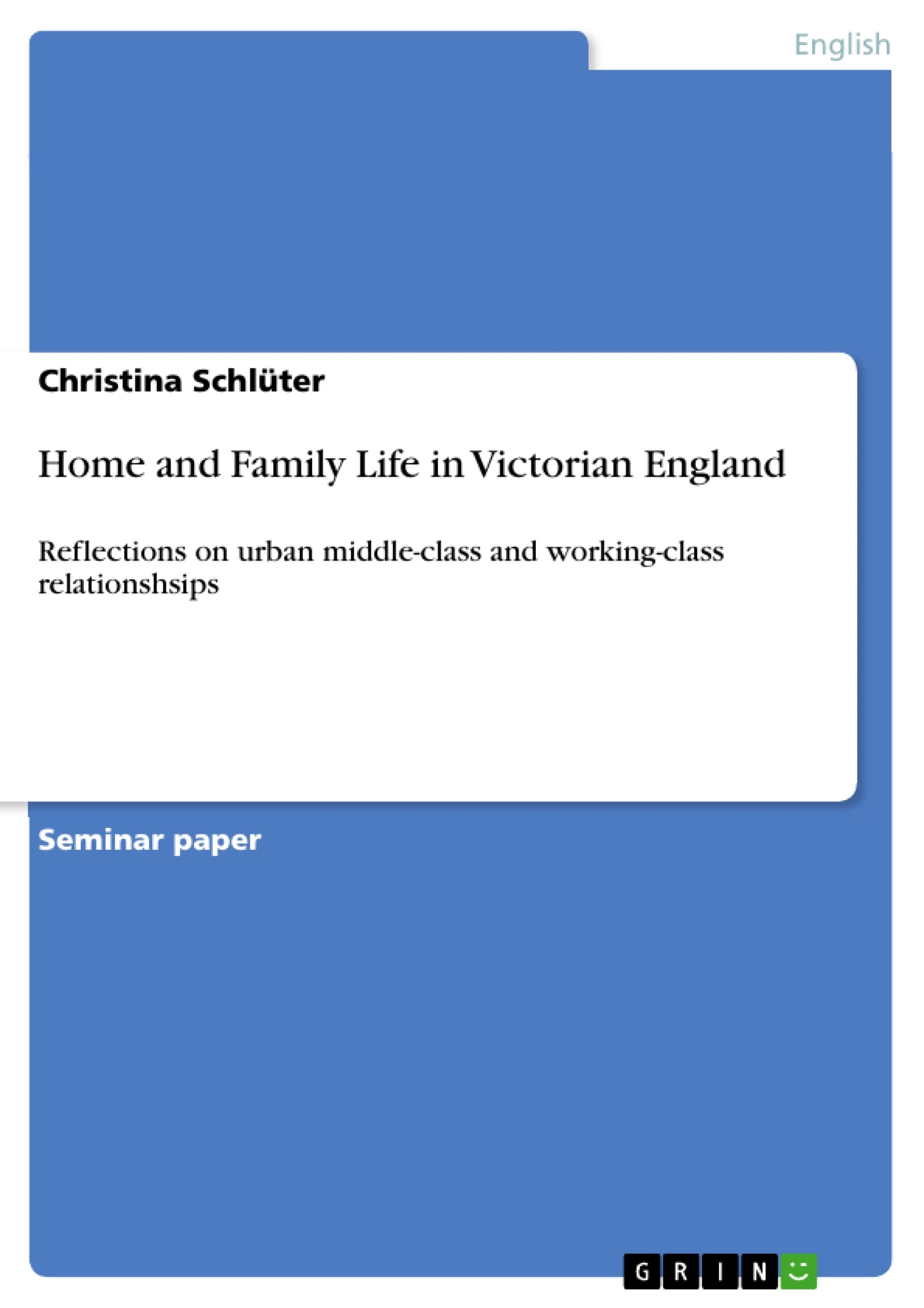The Victorian Age, referring to Queen Victoria’s reign from 1837 to1901, was a period of drastic political, economic and social change. The impacts of the continuing industrialization affected people’s lives to a great extent. Different occupational patterns as well as renewed social and moral values emerged and shaped the society of this time. The family cannot be considered as a single unit since its interaction with its social environment cannot be denied. Hence, people’s home and family life also underwent a radical change. Yet, not all of England’s citizens were equally affected as the prevailing sharp separation into social classes brought about different prerequisites and chances to cope with the developments. Urban middle-class and working-class members were most susceptible to outside influences, and the purpose of my studies is therefore to analyze and compare their family lives during the Victorian era.
Table of Contents
- Introduction
- Background Information
- Victorian Legislation Concerning Children
- Social Classes
- Perceptions of Childhood
- Family Life
- Doctrine of Two Spheres
- Ideal of Womanhood
- Family Constellations
- Middle-Class Family Life
- Marriage
- Gender Roles
- Men
- Women
- Children's Upbringing
- Education of Boys and Girls
- Working-Class Family Life
- Marriage
- Gender Roles
- Men
- Women
- Children between Work and School
- Differences between Girls and Boys
- Conclusion
Objectives and Key Themes
This study aims to analyze and compare the family lives of urban middle-class and working-class members in Victorian England, focusing on how industrialization and social changes impacted their home and family life.- Impact of Victorian legislation on family life
- Differences between middle-class and working-class families
- The doctrine of two spheres and its influence on gender roles
- The changing perceptions of childhood and its impact on child-rearing practices
- The role of education in shaping family life
Chapter Summaries
This study begins with an introduction that highlights the profound societal transformations of the Victorian era, particularly the impact of industrialization on family life. The second chapter delves into the historical context by examining Victorian legislation concerning children, outlining key laws like the Factory Acts and the Elementary Education Act. This chapter further explores the social stratification of Victorian England, analyzing the distinctions between the upper, middle, and working classes. The chapter concludes by examining how perceptions of childhood evolved during this period, highlighting the shift from the belief that children are inherently sinful to the idea of childhood as a distinct and valuable phase of life. The third chapter shifts focus to the domestic sphere, exploring the influence of the doctrine of two spheres on gender roles and family life. This chapter examines the ideal of womanhood, family constellations, and the differing experiences of middle-class and working-class families. The middle-class experience is further explored, including discussions about marriage, gender roles, and the upbringing of children. The chapter concludes by exploring the working-class family life, including their perspectives on marriage, gender roles, and the unique challenges facing working-class children. This chapter also examines the education of working-class children, highlighting the differences between the education of boys and girls.
Keywords
This study focuses on the complexities of home and family life in Victorian England, analyzing the interplay of social class, gender, education, and the impact of industrialization on family structures. Key themes include Victorian legislation concerning children, social class divisions, perceptions of childhood, the doctrine of two spheres, gender roles, and the experiences of both middle-class and working-class families.
- Quote paper
- Christina Schlüter (Author), 2008, Home and Family Life in Victorian England, Munich, GRIN Verlag, https://www.grin.com/document/112613




